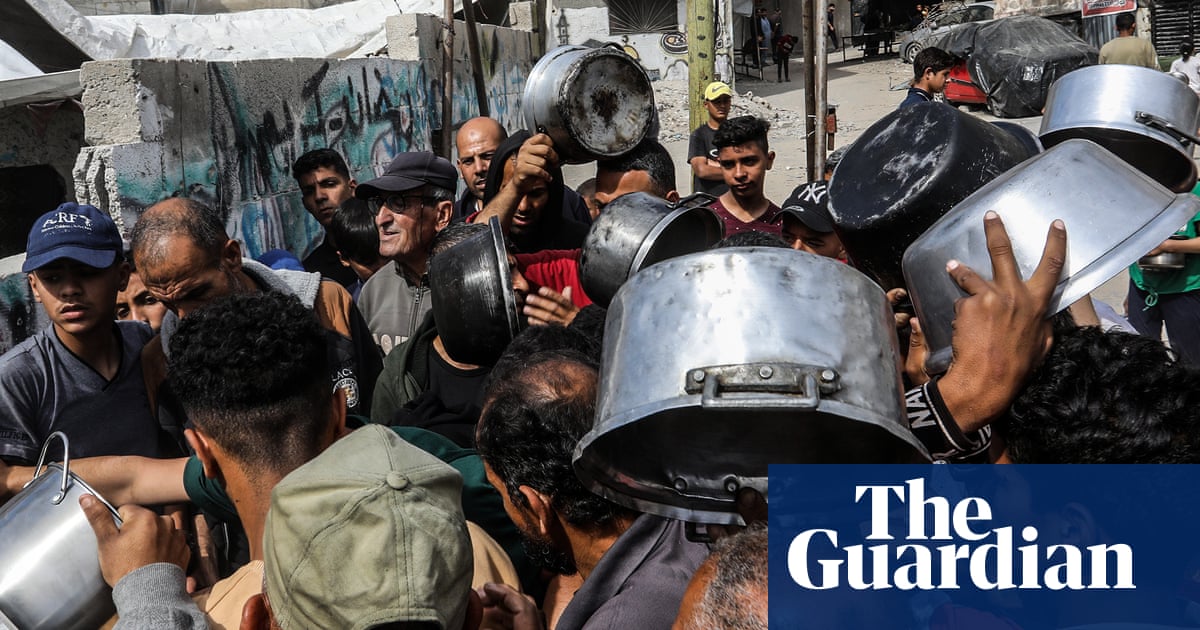The Dutch government, seen as one of Israel’s most loyal allies in the European Union, is calling for an urgent review of the EU Israel association agreement, the basis for the EU-Israeli free trade agreement, the Dutch foreign minister Caspar Veldkamp told the Guardian.
Veldkamp described the Israeli ban on the supply of aid into Gaza as “catastrophic, truly dismal” and in clear breach of international humanitarian law.
He has written to the head of the European Union foreign service Kaja Kallas requesting an urgent review, saying he believes Israel is now in breach of the association agreement.
Veldkamp, a former Dutch ambassador to Israel, said he expects the issue to be discussed at a two day informal EU foreign ministers meeting in Poland starting Wednesday.
The EU is Israel’s largest trade partner. The Dutch government has in the past led moves to block discussion of the association agreement’s suspension, a lever most persistently advocated by Ireland and Spain.
Explaining his position Veldkamp said: “You cannot starve the people of theGazaStrip. It is against international law. It’s morally wrong. It’s dangerous. I don’t think it’s in Israel’s own interest.”
Chances for a ceasefire appeared “very, very slim,” he said, making the situation “unbearable”.
The Dutch government would veto any extension of the EU-Israel action plan, the agreement implementing the association agreement that came into force in 2000, he added.
Article 2 of the EU-Israel association agreement stipulates that their relations are based on respect for human rights and democratic principles.
NGOs have repeatedly pressed a divided EU to take a stronger stand, but no moves were made to suspend the agreement in its meeting with Israel this February.
In his letter to Kallas, Veldkamp said Israel’s proposed system of aid distribution appeared incompatible with the “principles of neutrality, impartiality and independence”.
Speaking to the Guardian in London following a meeting with the British foreign secretary David Lammy he said that theNetherlandswas was “very concerned about the current conduct of the war, especially since the ceasefire’s end on 18th of March, and the blockade of humanitarian aid”.
He also challenged Netanyahu’s priorities saying a ceasefire was the most effective way to get hostages released.
“The criticism in Israel is increasing against [the] prime minister that he does not give enough priority to the release of the hostages, and he has now stated also that he doesn’t give that ultimate priority, but he gives the priority to fighting Hamas,” he said.
“Now, Hamas has to release the hostages as soon as possible. Hamas has to lay down its weapons. Hamas cannot be part of the future governance of the Gaza Strip,” he said, “I know there are also plans by Egypt, one of the facilitators of ceasefire talks wants to see Hamas leadership leave to a third country.”
With the International Court of Justice sitting in the Hague, the Dutch government feels it has an added duty to uphold ICJ judgements.
“I don’t have any illusions that Hamas will ever apply international humanitarian law, but from a democracy such as Israel, democracies fight differently, and Israel has to abide by international humanitarian law, and with the latest statements by Israeli ministers, such as minister Smotrich that he aims for a total destruction of the Gaza strip, we cannot ignore any longer such statements.
“I say this as someone that feels close to Israel, and as a former ambassador, this is not a sustainable policy by Israel, and it is time to work for peace”.
His remarks, and the potential impact on the European Union come days before Donald Trump flies to the Middle East for his first major overseas visits since his inauguration. Trump has not so far criticised Netanyahu’s strategy.
